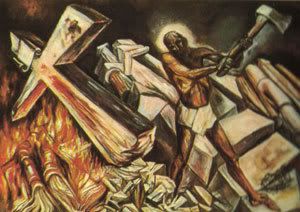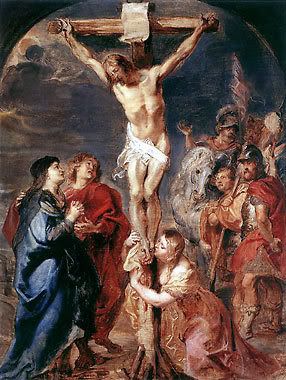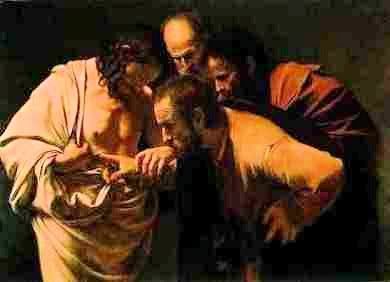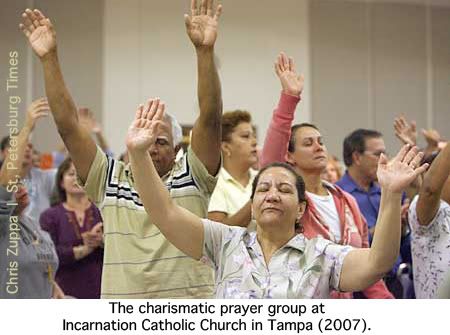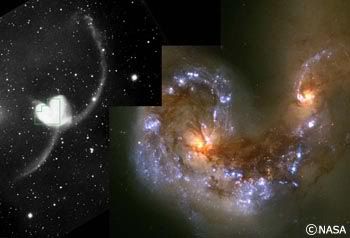
The concept of falsification is very important because without it there is no verification. The concept is really a matter of empirical science. Only matters that can be subjected to empirical proof can be verified or falsified. But atheists are always trying to apply the principle to God. They smugly argue that God cannot be verified or falsified to get across the point that there is no empirical evidence of God.Carl Popper argued that falsifiability is all we can have in the way of truth. God is not falsifiable because God is not given in sense data. Thus atheists arrogantly assume the irrationality of belief. Of course there are theories of which science discusses all the time that can't be falsified, such as string theory. Is it true that God cannot be falsified? Do we need to falsify God?
I suggest that we don't need direct falsification. As long as it is not the case that nothing could ever count against belief then we have what we need. Two conditions must be observed,however, which determine the importance of the problem:
(1) We are not conducting empirical research.
We do not require the sort for falsifiability we need to mandate air bags in cars for example, because we are not doing empirical research. We are dealing with personal beliefs and existential encounter. The purpose of falsification is going to be different than it would be if were conducting a field trial for a new drug, or discussing the mandating of air bags. The important thing here is to make sure the believer is not just living a private fantasy. There has to be a touchstone in the same social reality in which we all live. We do not need to disprove God in the way we would need to prove that some drug doesn't work or isn't safe.
(2) What counts against belief cannot be limited to a particular religious tradition.
I have seen atheists argue that if the Bible is wrong there can't be a god. When I told them that God can exist independently of the bible they were aghast. they would not believe "a Christian could say that." This has nothing to do with belief in the bible.It's just a matter of logic. Disproof of Biblical truth claims do not amount to disproof of God's existence.We can falsify the resurrection of Christ. It is not likely that we will, but theoretically we could find his tomb and find his body,if he had not risen. Many truth claims of the Christian tradition can be falsified. But this does not amount to saying that God can be falsified. Nor does disproving some aspect of the Bible amount to disproof of God's existence.
The existence of God cannot be directly falsified but what can be is the co-determinate. The "co-determinate" or "God postulate" or "God consciousness" is the argument of Schleiermacher represented by his notion of the feeling of utter dependence.
Co-determinate: The co-determinate is like the Derridian trace, or like a fingerprint. It's the accompanying sign that is always found with the thing itself. In other words, like trailing the invisible man in the snow. You can't see the invisible man, but you can see his footprints, and wherever he is in the snow his prints will always follow.
We cannot produce direct observation of God, but we can find the "trace" or the co-determinate, the effects of God in the world.
The only question at that point is "How do we know this is the effect, or the accompanying sign of the divine? But that should be answered in the argument below. Here let us set out some general parameters:
(1) The trace produced content with specifically religious affects
(2)The affects led one to a renewed sense of divine reality, are transformative of life goals and self actualization
(3) Cannot be accounted for by alternate causality or other means.
Argument:
(1) There is a pervading sense of unity in the life world
(2) The over all sense of unity produces a sense of the dependence of the whole upon a higher ontological level.
(3) The content of the experience is expressly sublime and evokes the sense of the numinous.
(4)The sense of the numinous is expressly religious and constitutes the co-determinate of the divine.
Analysis:
A.Religion not Reducible to Knowledge or Ethics.
Frederich Schleiermacher, (1768-1834) in On Religion: Speeches to it's Cultured Disposers, and The Christian Faith both set forth the view that religion cannot be reduced to knowledge or ethical systems. It is primarily a phenomenological apprehension of God consciousness through means of religious affections. Affections is a term not used much anymore, and it is easily confused with mere emotion. Sometimes Schleiermacher is understood as saying that "I become emotional when I pay and thus there must be an object of my emotional feelings." Though he does venture close to this position in one form of the argument, this is not exactly what he's saying.
In the earlier form of his argument he was saying that affections were indicative of a sense of God, but in the Christian Faith he argues that there is a greater sense of unity in the life world and a sense of the dependence of all things in the life world upon something higher.
What is this feeling of utter dependence? It is the sense of the unity in the life world and it's greater reliance upon a higher reality. It is not to be confused with the starry sky at night in the desert feeling, but is akin to it. I like to think about the feeling of being in my backyard late on a summer night, listening to the sounds of the freeway dying out and realizing a certain harmony in the life world and the sense that all of this exists because it stems form a higher thing. There is more to it than that but I don't have time to go into it. That's just a short hand for those of us to whom this is a new concept to get some sort of handle on it. Nor does "feeling" here mean "emotion" but it is connected to the religious affections. In the early version S. thought it was a correlate between the religious affections and God; God must be there because I can feel love for him when I pray to him. But that's not what it's saying in the better version.
B.Platonic background.
The basic assumptions Schleiermacher is making are Platonic. He believes that the feeling of utter dependence is the backdrop, the pre-given, pre-cognitive notion behind the ontological argument. IN other words, what Anselm tried to capture in his logical argument is felt by everyone, if they were honest, in a pre-cognitive way. In other words, before one thinks about it, it is this "feeling" of utter dependence. After one thinks it out and makes it into a logical argument it is the ontological argument.
C.Unity in the Life world.
"Life world," or Labeinswelt is a term used in German philosophy. It implies the world of one's culturally constructed life, the "world" we 'live in.' Life as we experience it on a daily basis. The unity one senses in the life world is intuitive and unites the experiences and aspirations of the individual in a sense of integration and belonging in in the world. As Heidegger says "a being in the world." Schleiermacher is saying that there is a special intuitive sense that everyone can grasp of this whole, this unity, being bound up with a higher relatively, being dependent upon a higher unity. In other words, the "feeling" can be understood as an intuitive sense of "radical contingency" (int he sense of the above ontological arguments).
He goes on to say that the feeling is based upon the ontological principle as its theoretical background, but doesn't' depend on the argument because it proceeds the argument as the pre-given pre-theoretical pre-cognitive realization of what Anslem sat down and thought about and turned into a rational argument: why has the fools said in his heart 'there is no God?' Why a fool? Because in the heart we know God. To deny this is to deny the most basic realization about reality.
Now don't think by any stretch of the imagination that I think this proves the existence of God! No, no way. It is not "proof," it is freedom from the need to prove!
As Robert R. Williams puts it:
There is a "co-determinate to the Feeling of Utter dependence.
"It is the original pre-theoretical consciousness...Schleiermacher believes that theoretical cognition is founded upon pre-theoretical inter subjective cognition and its life world. The latter cannot be dismissed as non-cognitive for if the life world praxis is non-cognitive and invalid so is theoretical cognition..S...contends that belief in God is pre-theoretical, it is not the result of proofs and demonstration, but is conditioned solely by the modification of feeling of utter dependence. Belief in God is not acquired through intellectual acts of which the traditional proofs are examples, but rather from the thing itself, the object of religious experience..If as S...says God is given to feeling in an original way this means that the feeling of utter dependence is in some sense an apparition of divine being and reality. This is not meant as an appeal to revelation but rather as a naturalistic eidetic"] or a priori. The feeling of utter dependence is structured by a correlation with its whence." , Schleiermacher the Theologian, p 4.
The Co-determinate is the trace of God in the world, the effect of the divine upon those who experience the transformational power of God in their lives. This can be falsified by empirical study. If there were no profound effects changing lives this would count against the truth claims of belief. Since we do find such effects we know that power of God is real, ant thus we have a rational warrant to believe that ;God is real.


